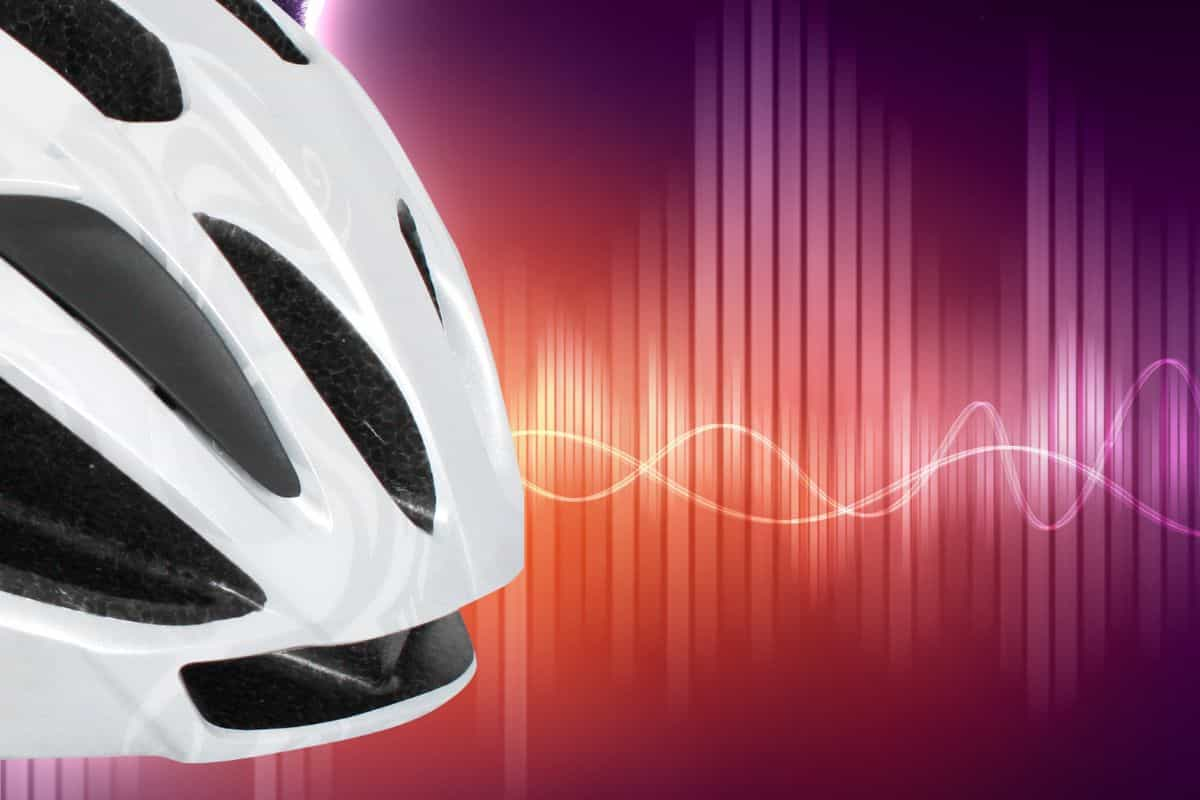Are Bluetooth Helmets Safe?
In recent years, the prevalence of Bluetooth systems in helmets has been on the rise. Despite the numerous advantages that come with this technology, there are potential safety concerns that must be taken into account.
While some individuals perceive Bluetooth helmets as a safer option because they permit hands-free phone conversations and music streaming during bike or motorcycle rides, others are apprehensive that these added distractions may result in accidents.
So, are Bluetooth helmets safe? That’s the question we’ll be exploring in this article. We’ll dive into the regulations governing these devices and offer some tips on how to use them safely.
KEY TAKEAWAYS
* Bluetooth helmets can be considered safe as long as they meet the required safety certification standards (i.e. CPSC, ASTM, DOT, etc.).
* Despite the numerous advantages of Bluetooth helmets, the wearer may be at risk of distraction.
* The power density emitted from Bluetooth devices is within the safety limits for human use.

Disclosure: As an Amazon Associate, we earn from qualifying purchases. Disclosure Statement.
Page Content

The Growing Popularity Of Bluetooth Helmets
Bluetooth helmets are becoming increasingly popular, particularly among cyclists, motorcyclists, and skiers, as well as firefighters, construction workers, and military personnel. With significant advancements in Bluetooth technology over recent years, these helmets have become an attractive option for individuals who desire or require connectivity while working or engaging in outdoor activities.
The convenience and functionality of Bluetooth helmets have been a major driving force behind their increasing popularity. With the ability to stay connected while on the move, individuals can remain focused on their activities while still remaining accessible and responsive.
If you’re someone who enjoys outdoor sports or requires hands-free communication on the job, a Bluetooth helmet might be the perfect solution. With so many great features available, it’s no wonder these helmets are becoming such a hit!
Advantages and Disadvantages of Bluetooth Helmets
Bluetooth helmets are designed to offer convenience and safety, however, they also come with their fair share of drawbacks. Let’s take a closer look at the pros and cons of Bluetooth helmets.
Pros:
Convenience: The convenience that Bluetooth helmets provide is unmatched. With a Bluetooth helmet, you can easily make phone calls, receive text messages, and get directions from your GPS system without having to dig into your pocket or bag to find your phone. Once paired, the speakers in the helmet allow you to stream audio directly from your mobile device. This feature is especially helpful when you’re riding a motorcycle or participating in outdoor activities.
Connectivity: The increased connectivity offered by Bluetooth helmets is another huge advantage. By pairing your helmet with your smartphone or other digital device, you can stay connected at all times. This is particularly useful in emergencies or if someone needs to contact you. You can also communicate with other riders or drivers with Bluetooth-enabled helmets, which can make group rides much more enjoyable.
Safety: Another significant benefit of Bluetooth helmets is the increased safety they provide. By allowing riders to make hands-free calls or receive audio GPS directions, riders no longer need to remove their hands from the handlebars, which can reduce the risk of accidents. Intercom chat is another useful feature for riders on motorcycles, allowing them to communicate with their pillion passenger without having to turn their heads. Some Bluetooth systems even have an automatic SOS feature that sends your location to your designated contact in the event of an accident.

Cons:
Distraction is a major safety concern when it comes to using Bluetooth helmets. While the ability to make hands-free calls or listen to music while riding can be alluring, it can also reduce your concentration on the road, increasing the risk of accidents and injuries. This risk is even higher for inexperienced users and younger riders who may be more easily distracted.
In conclusion, Bluetooth helmets offer many benefits, including convenience, increased connectivity, and safety. However, they also come with some drawbacks that must be considered. By weighing the pros and cons, you can decide whether a Bluetooth helmet is the right choice for your needs. If you do choose to use one, be sure to follow all safety guidelines to minimize the risk of accidents and injuries.
Bluetooth Helmet Safety: Examining the Evidence
While there is little data available on the safety of Bluetooth helmets specifically, studies show that wearing any helmet while cycling or motorcycling can reduce the risk of head injury by up to 88%. It’s important to note, however, that the safety of a helmet depends on its design, construction, and adherence to safety standards – Bluetooth technology alone does not guarantee safety.
Some people have expressed concern about the possible negative effects of Bluetooth signals on the brain. However, research conducted in 2019 has debunked these fears. According to an article by Headphonesty, Bluetooth devices emit power density at levels much lower than those of mobile phones. In fact, Apple AirPods, one of the most popular Bluetooth devices on the market, have a specific absorption rate (SAR) value of only 0.072 W/kg for the head and 0.603 W/kg for the body, which are considered safe for human use.

In summary, while there is not yet specific data on the safety of Bluetooth helmets, there is evidence to suggest that helmets in general are effective at reducing head injuries. Additionally, Bluetooth technology has been shown to be safe for human use. However, as with any safety equipment, it’s important to choose a high-quality helmet and use it properly to maximize its safety benefits.
Helmet Regulations And Standards
The safety and regulatory standards for helmets have not yet been differentiated for those that are equipped with Bluetooth technology and those that are not. It is crucial to ensure that the helmet, regardless of its features, meets the safety certification standards of your country for the specific type of helmet you intend to purchase.
In the United States, for instance, it is important to look for a CPSC (Consumer Product Safety Commission), ASTM (American Society for Testing and Materials), or DOT (Department Of Transportation) certification label on the helmet. This indicates that the product has been tested by these organizations and deemed safe for use by consumers for the intended purpose of the helmet.
It’s worth noting that Bluetooth technology in a helmet does not exempt the product from meeting safety standards set for helmets. Therefore, when purchasing a Bluetooth helmet, it is essential to ensure that it meets all the relevant safety standards for that type of helmet.
Conclusion – Are Bluetooth Helmets Safe?
In conclusion, Bluetooth helmets can be considered safe as long as they meet the required safety certification standards. Nonetheless, like with any other type of helmet, there are risks that need to be taken into account by both manufacturers and wearers.
For example, the potential risks associated with distractions while cycling should be considered when using a Bluetooth helmet.
To ensure maximum safety, it is recommended that cyclists wear their helmet as they usually would, with or without a Bluetooth device, while also keeping in mind the potential dangers that come with distraction while cycling.
In addition, it is essential to ensure that the helmet is certified safe and to always maintain focus on the road and avoid using your phone while skiing, cycling, or riding a motorcycle.
I hope we have answered the question of ‘Are Bluetooth Helmets Safe’ to your satisfaction. If you enjoyed this article, take a look at the related reads below for some more interesting reads!
Related Reads:
